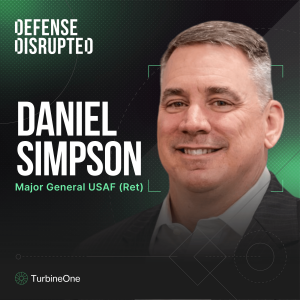
Tuesday Jun 03, 2025
Ret. Major General Daniel “D-Day” Simpson on Preparing Warfighters for AI Integration
The assumption that America maintains decisive military superiority might be more dangerous than the threats we're actually facing. Daniel "D-Day" Simpson, Major General USAF (ret), brings decades of intelligence and operational experience to challenge conventional wisdom about peer competition, artificial intelligence, and the pace of defense innovation.
D-Day's career trajectory provides unique insights into how military professionals adapt to radically different operational environments. His wisdom spans the evolution from Cold War deterrence through counterterrorism operations to renewed great power competition, offering critical perspective on how technological advantages can create strategic blind spots. Most importantly, his current focus on artificial intelligence integration reflects deep understanding of both operational requirements and implementation challenges that academic discussions often miss.
His conversation with Ian also explores why treating China as a "near peer" rather than peer competitor reflects dangerous strategic miscalculation, how artificial intelligence represents evolutionary rather than revolutionary change at revolutionary speed, and why future conflict scenarios will exceed human processing capabilities regardless of personnel increases.
Topics Discussed:
- How China's systematic study of American joint operations over three decades has produced specific countermeasures designed to exploit US dependencies on space-based assets and theater access.
- The strategic implications of shifting from "near peer" to "peer competitor" language and why this distinction reflects capability gaps rather than political positioning.
- Why artificial intelligence represents evolutionary advancement at revolutionary speed, requiring fundamental changes in training and operational integration rather than simple technology adoption.
- The critical difference between counterterrorism operations focused on individual targets versus peer conflict across multiple domains with thousands of dynamic targets moving simultaneously.
- How the expectation of zero casualties from decades of technological superiority creates operational constraints that peer adversaries specifically exploit in their strategic planning.
- Implementing AI-assisted intelligence fusion to compress analysis timelines from days to seconds while maintaining accuracy standards required for kinetic targeting decisions.
- The workforce transformation challenge when AI acceleration reduces task completion from days to minutes, requiring strategic personnel reallocation rather than simple headcount reduction.
- Why young warfighters must extensively test and break AI systems during peacetime operations to understand limitations and develop trust before combat employment becomes mission-critical.
No comments yet. Be the first to say something!